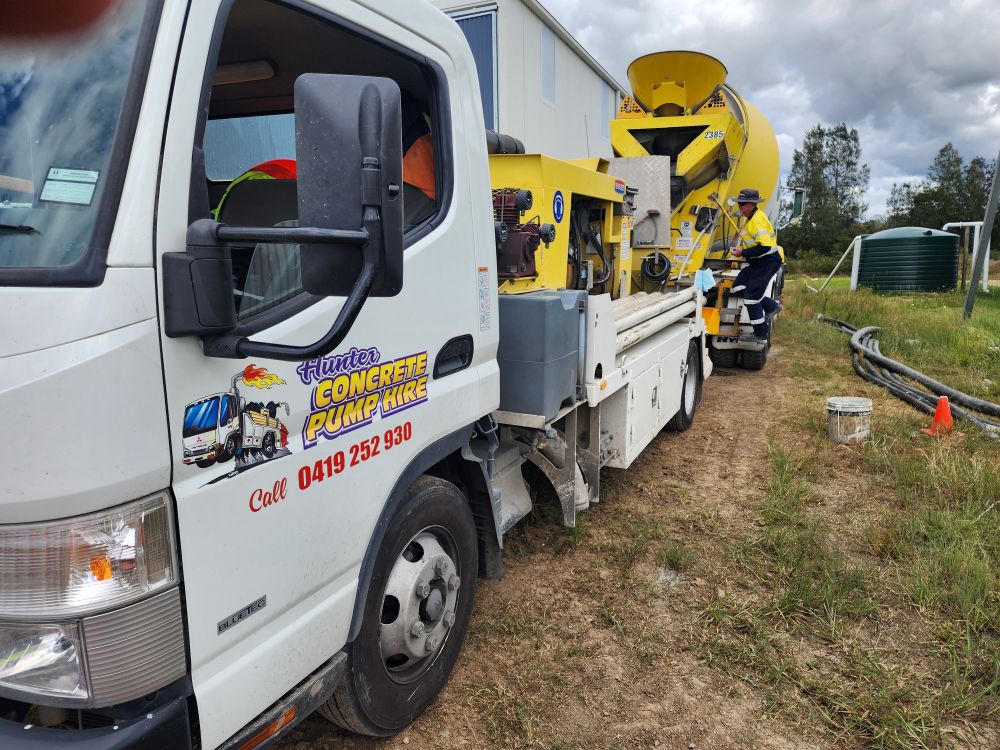Essential Strategies to Avoid Major Mistakes When Hiring a Concrete Pump
To guarantee a seamless and productive concrete pouring experience, it is crucial to eliminate unnecessary delays and unexpected costs. This can be accomplished by carefully selecting the right pump, meticulously planning site access, and verifying the specific details of the pour. Even minor oversights can lead to major disruptions during concrete projects, potentially threatening both the timeline and budget of your endeavour. By investing time in these vital considerations, you not only prevent future complications but also save on extra expenses in the long run, resulting in a more efficient and cost-effective project outcome.

1. Choose the Right Type of Concrete Pump Tailored to Your Project Requirements
The selection of the most appropriate pump type is heavily influenced by the distinctive dimensions and layout of your construction site. For example, line pumps are particularly advantageous for residential projects involving driveways, footings, or scenarios where site access is limited. In contrast, boom pumps are specifically designed for larger commercial applications, such as heavy-duty slabs, elevated pours, or expansive areas. By thoroughly evaluating and identifying the correct pump type that aligns with your project needs, you can ensure that the concrete pour proceeds smoothly and efficiently, thereby minimising any potential challenges or delays.
2. Accurately Calculate the Concrete Volume Required for Your Pour
Miscalculating the necessary volume of concrete can lead to frustrating delays and the formation of cold joints, which can compromise the integrity of your project. Undervaluing the volume needed may result in requiring additional mixes, while overestimating could create waste and inflated costs. It is essential to meticulously measure the length, width, and depth of the pour area. If necessary, consult your concrete supplier for confirmation and support. This diligent approach not only aids in avoiding unnecessary expenses but also ensures that your project remains on schedule without unwarranted interruptions.
3. Strategically Plan for Site Access to Facilitate Smooth Operations
When hiring a concrete pump, it is imperative to carefully evaluate site access. Boom trucks require a stable ground surface, adequate overhead clearance, and sufficient space for the safe extension of their booms. Conversely, line pumps necessitate a clear path for the hose leading from the pump to the pour location. For tighter residential projects, conducting a preliminary walk-through can help identify potential access hurdles, ensuring smoother and more efficient operations on the day of the pour, thereby minimising the likelihood of complications arising on-site.
4. Secure Your Concrete Pump with Timely Booking Arrangements
It is vital to recognise that the most reputable operators often book up quickly, especially during peak construction seasons in areas such as Hunter and Newcastle. Delaying the securing of your pump hire considerably raises the risk of being without the necessary equipment, which could lead to costly delays in your project timeline. To prevent such a scenario, it is advisable to finalise your booking well in advance, thus facilitating a more streamlined project schedule and enhancing the overall efficiency of your operations.
5. Conduct a Thorough Site Visit for Comprehensive Assessment
While sending photographs of the site can provide some insights, there is no substitute for the value of a physical site visit. This brief on-site assessment allows you to pinpoint critical factors, such as hose routing requirements, vehicle access points, suitable washout locations, and the distance from the truck to the slab. By proactively assessing the site, you can tackle any potential issues beforehand, ensuring a seamless and effective concrete pouring process that adheres to all safety and operational standards.
6. Develop a Robust Washout and Cleanup Plan for Concrete Pumping
Concrete pumping inherently generates waste, making it essential to establish a well-structured washout plan. This strategy should ensure that the slurry produced during the pumping process does not contaminate finished areas or obstruct any drainage systems. Most operators will ask about your preferred washout location, so it is crucial to communicate your requirements clearly in advance to avoid any mishaps during the cleanup process, thus maintaining a tidy and safe working environment.
7. Confirm Labour Arrangements and Define the Scope of Your Project
Before finalising your hire, always ensure that you verify what services are included in your rental agreement. Some contracts may only cover the operator, while others might include an entire crew. It is essential to clarify whether the hired team will assist with tasks such as hosing, vibrating, or finishing the concrete. By having a clear understanding of who is responsible for each aspect of the project prior to the arrival of the concrete, you can prevent misunderstandings and guarantee that everything operates smoothly throughout the pouring process.
Why Hunter Concrete Pumps is Your Best Choice for Mini Pump Hire
Hunter Concrete Pumps offers a simple and transparent hiring process, making it easier for you to obtain the support and equipment you require:
- Flat Rate Hiring Option: Enjoy a competitive rate of $800 for the first load (covering up to 3 hours on-site), with an additional charge of $50 for each subsequent load.
- Hourly Rate Hiring Option: Opt for an hourly rate of $190 (with a minimum requirement of 3 hours), plus an additional $190 for travel and $6 per m³ pumped.
If you are uncertain about the equipment that best fits your project requirements, the dedicated team at Hunter Concrete Pumps is ready to assist you throughout your entire project journey. They can guide you in selecting the most suitable pump, provide precise estimates for your concrete volume, and even coordinate concrete supply along with experienced labour to ensure a hassle-free experience from start to finish.
Frequently Asked Questions About Concrete Pump Hiring
What is the most cost-effective option for hiring a concrete pump for a small project?
For smaller residential pours, a mini line pump typically represents the most economical choice. Hunter Concrete Pumps provides a flat-rate option starting at just $800 for the first load, making it an attractive option for customers who are budget-conscious and seeking value.
Can Hunter Concrete Pumps assist in coordinating my pour from start to finish?
Absolutely! Hunter Concrete Pumps is fully equipped to assist with selecting the right pump, estimating the required volume of concrete, arranging timely delivery, and providing crew members to efficiently manage the hose and cleanup tasks. This comprehensive support ensures that your concrete pour is executed flawlessly.
Fostering Strong Partnerships with Concrete Pumping Experts
Hiring a concrete pump can be a straightforward process when you concentrate on the essentials: site access, accurate volume calculations, crew coordination, and timely bookings. By getting these foundational elements right, you can effectively avoid the common pitfalls that often delay projects and inflate costs. With the right team supporting you, your concrete pour can be executed flawlessly on the first attempt. This level of reliability is the reason why Hunter Concrete Pumps has established strong partnerships with numerous developers across Newcastle and the Hunter Region, ensuring high-quality results and utmost customer satisfaction.
Concrete Pump Hire
The Article: Avoid These Common Hiring Mistakes for Concrete Pumps first appeared on https://writebuff.com
The Article Avoid Common Concrete Pump Hiring Mistakes Was Found On https://limitsofstrategy.com
The Article Concrete Pump Hiring Mistakes to Avoid found first on https://electroquench.com

